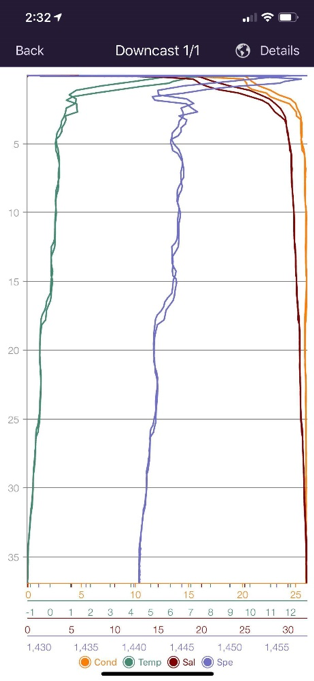On the afternoon of August 3rd, 2019, the MS Ocean Endeavour steamed into Croker Bay at Devon Island, Nunavut, in the Canadian Arctic. There, a group of students in zodiacs cast an RBRbrevio³ CTD into the Arctic Ocean as part of their hands-on discovery of the polar region on a Students On Ice (SOI) expedition.
Day 13 of the 16-day cruise, the students went out on the water in three zodiacs to discuss oceanography and carry out sampling using sensors provided by SOI partner organizations, including an RBRbrevio³ CTD.
Within sight of Devon Island, part of the Canadian Arctic Archipelago and the world’s largest uninhabited island, students lowered the CTD on a line to a depth of about 35 m. On recovery, they twisted the CTD’s cap, which activates its Wi-Fi and transfers the data to Ruskin Mobile, and viewed their data right away on an iPhone. The experience showed students how a CTD cast is conducted, and why oceanographers use CTDs.
Since 2000, Students on Ice have run over 30 expeditions to the poles, taking high school and university students – 131 on the 2019 Arctic expedition – from around the world on educational polar expeditions, enabling youth to connect with and better understand the polar regions. Beyond Arctic and climate science, students learn about polar governance, history, science, cultures. They also have the opportunity to connect with local communities.

RBR CTDs are your intuitive and reliable solution for educational and citizen science programs. Their high accuracy data makes them also suitable for research and peer-reviewed publication. Check out our full suite of standard loggers or contact us for help or more info.
Vertical profile data displayed on the Ruskin Mobile app, collected by students on a Students On Ice expedition at Croker Bay, Nunavut, in the Canadian Arctic, August 3, 2019.
Related articles: